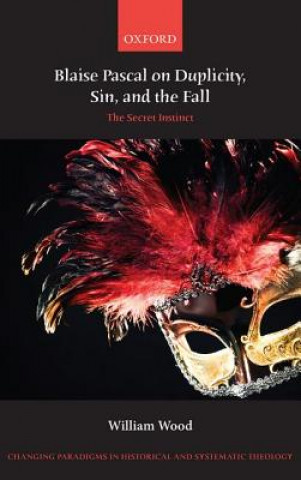
Doručení
Nákupní rádce





Nehodí se? Vůbec nevadí! U nás můžete do 30 dní vrátit
 Dárkový poukaz
V libovolné hodnotě
Dárkový poukaz
V libovolné hodnotě
S dárkovým poukazem nešlápnete vedle. Obdarovaný si za dárkový poukaz může vybrat cokoliv z naší nabídky.
Blaise Pascal on Duplicity, Sin, and the Fall
 Angličtina
Angličtina
 521 b
521 b
30 dní na vrácení zboží
Mohlo by vás také zajímat


Blaise Pascal's account of the cognitive consequences of the Fall is clearly set out by William Wood in the first book on Pascal's theology to appear in English in more than forty years. Wood's central claim is that for Pascal, the Fall is a fall into duplicity. Pascal holds that as fallen selves in a fallen world, human beings have an innate aversion to the truth that is also, at the same time, an aversion to God. According to Pascal, we are born into a duplicitous world that shapes us into duplicitous subjects, and so we find it easy to reject God continually and deceive ourselves about our own sinfulness. Pascal's account of the noetic effects of sin has long been overlooked by theologians, but it is both traditional and innovative. It is robustly Augustinian, with a strong emphasis on the fallen will, the darkened intellect, and the fundamental sin of pride. Yet it also embraces a view of subjectivity that seems strikingly contemporary. For Pascal, the self is a fiction, constructed from without by an already duplicitous world. The human subject is habituated to deception because it is the essential glue that holds his world together. This book offers more than just a novel interpretation of Pascal's Pensees. Wood demonstrates, by exegetical argument and constructive example, that 'Pascalian' theology is both possible and fruitful.
Informace o knize
 Angličtina
Angličtina




 Jak nakupovat
Jak nakupovat






























